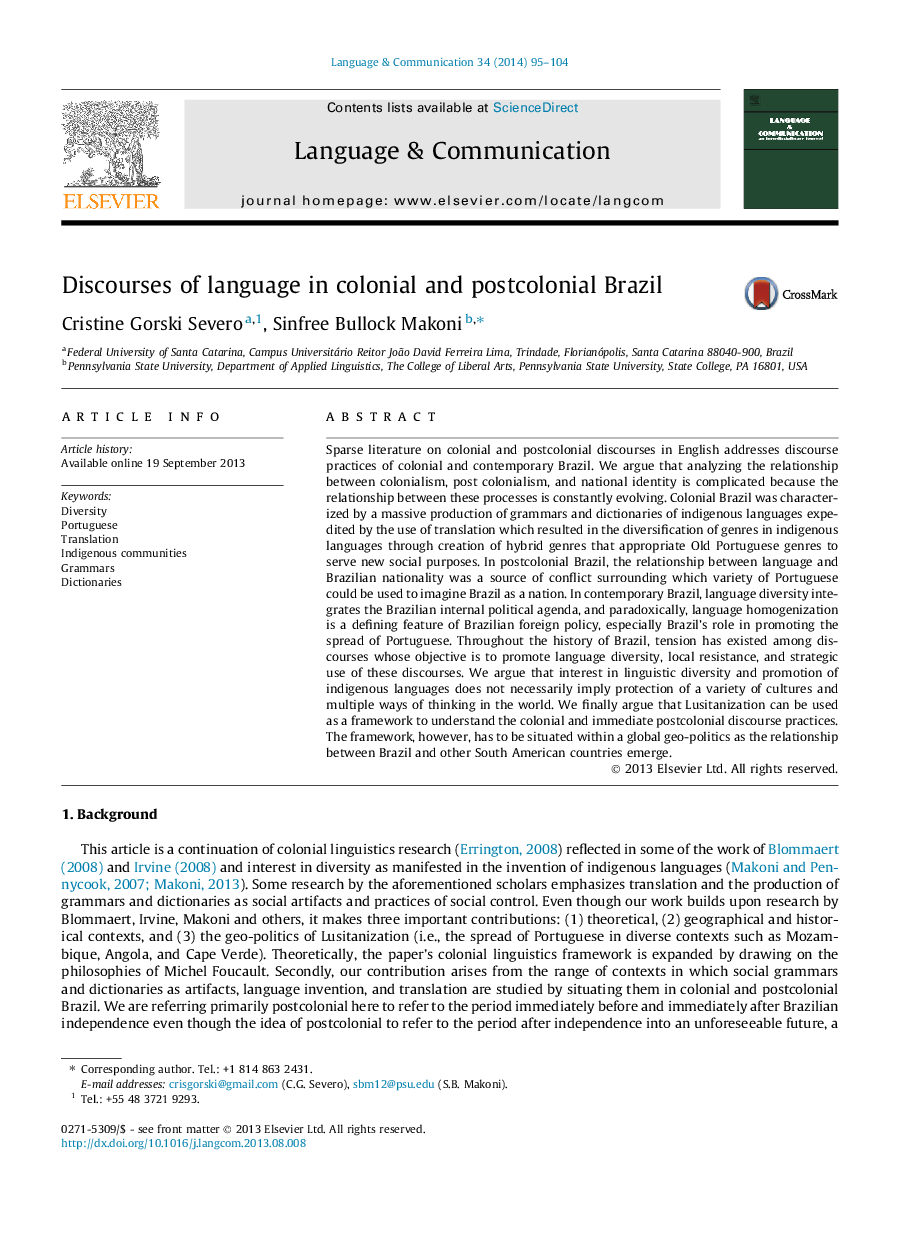| Article ID | Journal | Published Year | Pages | File Type |
|---|---|---|---|---|
| 7298318 | Language & Communication | 2014 | 10 Pages |
Abstract
Sparse literature on colonial and postcolonial discourses in English addresses discourse practices of colonial and contemporary Brazil. We argue that analyzing the relationship between colonialism, post colonialism, and national identity is complicated because the relationship between these processes is constantly evolving. Colonial Brazil was characterized by a massive production of grammars and dictionaries of indigenous languages expedited by the use of translation which resulted in the diversification of genres in indigenous languages through creation of hybrid genres that appropriate Old Portuguese genres to serve new social purposes. In postcolonial Brazil, the relationship between language and Brazilian nationality was a source of conflict surrounding which variety of Portuguese could be used to imagine Brazil as a nation. In contemporary Brazil, language diversity integrates the Brazilian internal political agenda, and paradoxically, language homogenization is a defining feature of Brazilian foreign policy, especially Brazil's role in promoting the spread of Portuguese. Throughout the history of Brazil, tension has existed among discourses whose objective is to promote language diversity, local resistance, and strategic use of these discourses. We argue that interest in linguistic diversity and promotion of indigenous languages does not necessarily imply protection of a variety of cultures and multiple ways of thinking in the world. We finally argue that Lusitanization can be used as a framework to understand the colonial and immediate postcolonial discourse practices. The framework, however, has to be situated within a global geo-politics as the relationship between Brazil and other South American countries emerge.
Related Topics
Social Sciences and Humanities
Arts and Humanities
Language and Linguistics
Authors
Cristine Gorski Severo, Sinfree Bullock Makoni,
